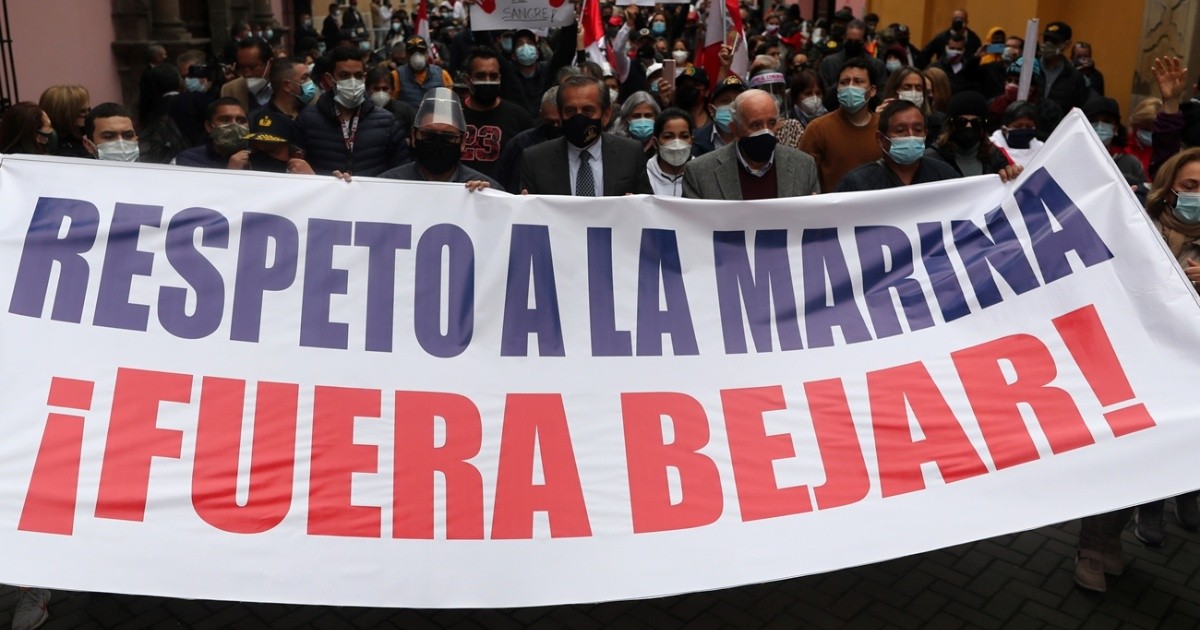
The Government of Peru continues to add short circuits. In this case, with his first casualty after the resignation of Foreign Minister Hector Béjar, hours after having opened a strong controversy based on statements made in February in which he attributed to the Navy the beginning of “terrorism” in the country. Béjar’s departure, announced by the Presidential Office’s Secretariat for Strategic Communication and Press, came a day after his meeting with President Pedro Castillo and just hours after Cabinet Chief Guido Bellido published a message that the government would have “changes for the country’s progress.” Bellido’s words are in addition to those of Interior Minister Juan Carrasco Millones, who expressed his support for the security forces and his rejection of terrorism, while clarifying that “each minister is responsible for his opinions.”
At the weekend, a television network brought to light statements by Béjar made in February, during the election campaign, in which he spoke of the role that the Navy would have played in the fight against the Shining Path.” Terrorism in Peru was initiated by the Navy and that can be demonstrated historically. I am convinced, although I cannot prove it, that the Shining Path has largely been the product of the services of the CIA and US intelligence. I can’t prove it, but I’m convinced of that,” the now-former foreign minister said. In this context, Justice Minister Anibal Torres accused Congress of having planned the impeachment of the new president Pedro Castillo, who took office on July 28.” We have said it from the outset, parliamentarians are not going to let us work. They are going to look for pretexts not only not to give confidence to the cabinet, but also to remove the president,” the official warned.
Torres is part of Castillo’s first cabinet, which will have to appear on August 26 before the plenary session of Congress to present the policies that he intends to implement in the different portfolios. After the hearing, the plenary will have to vote on whether to support the cabinet, thus ratifying his presidential appointment in a controversial constitutional mechanism known as a “vote of confidence.” In the event that it is not ratified, Castillo will have to carry out reforms and present a new Cabinet to the same legislature. If it is rejected again, the president has the power to dissolve Congress and call early elections to rebuild it.
"El reclamo puede ser genuino, pero construido sobre una mentira", apuntó el presidente Javier Milei…
El gobernador de la provincia de Buenos Aires, Axel Kicillof, encabezó un acto en Ensenada…
El diputado nacional de La Libertad Avanza, José Luis Espert, expresó su confianza en la…
Tras la masiva reaparición de Cristina Fernández de Kirchner, el presidente Javier Milei apuntó contra…
El principal propósito de la nueva comisión es evaluar los recursos humanos en el Senado,…
En una medida que busca redefinir las condiciones de los seguros de automóviles en Argentina,…
Esta web usa cookies.